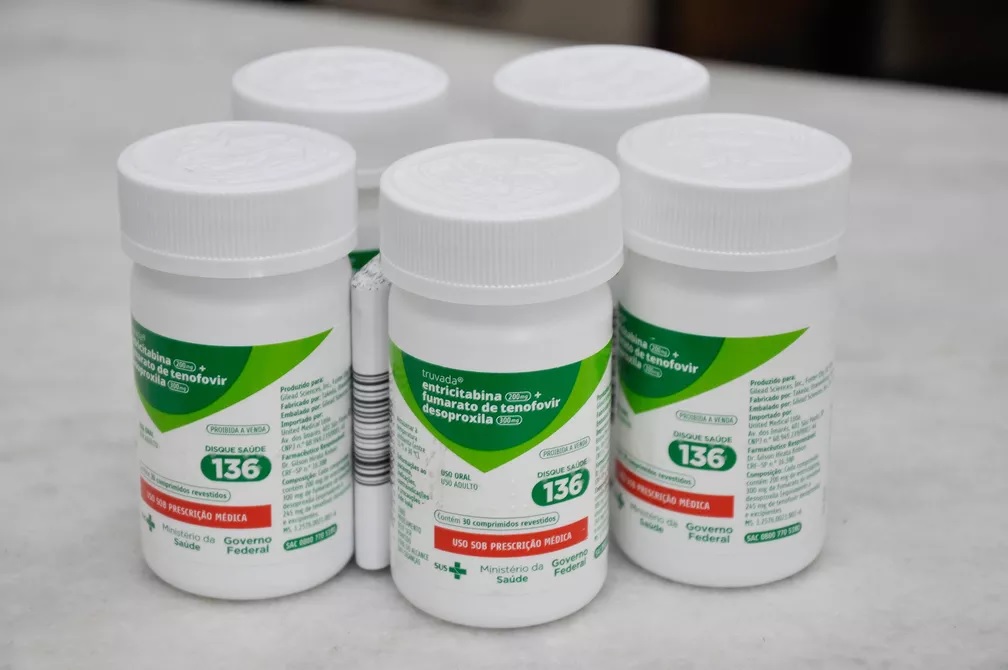About five years ago, the debate on incorporating Pre-Exposure Prophylaxis to HIV, or PrEP, into the Brazilian Unified Health System (SUS) began in Brazil.
It was not a quick or easy discussion because even though PrEP had already been shown to be effective, safe, and cost-effective in different studies, there were still those who publicly positioned themselves against its use, blocking its implementation.
It was only in late 2017 that Conitec, the Ministry of Health commission that evaluates the incorporation of new technologies, hit the hammer authorizing the beginning of the implementation of PrEP in the Brazilian public health system.

Initially, it was determined in this process that the distribution of PrEP would be restricted and monitored, with its use indicated only for four of the most vulnerable groups to HIV: gay or bisexual men, transgender people, sex workers, and partners of people living with HIV.
Even if they were part of one of these groups, PrEP was only indicated when there was a report of inconsistent condom use during sexual relations.
In the five years that have passed, the number of services that provide PrEP and users of this prevention method throughout the country has multiplied.
However, although all units of the Federation have already started this service, it is clear that there is still a glaring inequality in access to PrEP in Brazil.
According to data from the Ministry of Health’s PrEP Clinical Monitoring Report, published last month, most PrEP users in Brazil are in the state of São Paulo (46%), are gay/bisexual men (85%), are over 30 years old (64%), have completed high school (72%), and self-declare as white or yellow (57%).
The numbers are worrisome. Not because middle-aged, white, college-educated, gay men from São Paulo should not be receiving PrEP from SUS, but because the numbers expose the inequality of access to information and health in the country, which leaves an ocean of people vulnerable to HIV, such as black, peripheral, trans, and less educated people, far away from the benefit of PrEP prevention.
Since July of last year, patients accompanied by private or health insurance doctors have been allowed to take PrEP free of charge to relieve the burden on SUS services.
After six months of this determination, 13% of the PrEP dispensations by SUS were already made for patients from the private health system.
Another point that deserves attention is that the 2018 PrEP protocol restricted the prescription to those over 18 years of age. Meanwhile, in Brazil, it is among younger men that the most significant increase in HIV incidence has occurred over the past decade.
About to complete five years, the clinical protocol that guides the provision of PrEP in Brazil was reviewed by Conitec, and the Ministry of Health has just published its update.
Among the new features, the most important is the expected expansion of the indication of PrEP use to any person living at risk of HIV infection, regardless of whether or not they belong to one of those four subgroups.
PrEP can now be prescribed to individuals over 15 without needing their parents’ presence or permission. As an argument for this decision, the protocol is based on the Statute of the Child and Adolescent, which states that this population must be guaranteed access to health services, guidance, and consultations.
In addition, the new document definitively regulates the possibility of prescribing PrEP by nursing professionals, simplifies the routine collection of laboratory tests for healthy individuals under 50, and is in line with the WHO (World Health Organization) by recommending an attack dose of two PrEP pills on the first day, so that from the beginning it already promotes prevention against HIV.
On the other hand, the updated version of the Brazilian PrEP protocol fails to incorporate PrEP on Demand, an alternative way of taking the pills, no less effective in prevention but with fewer renal side effects than daily taking.
PrEP On Demand has been recommended by the WHO since 2019 and used off-label in Brazil by hundreds of Brazilians.
Like science, the Brazilian response to control the HIV/AIDS epidemic is dynamic and constantly renewing itself. Let’s celebrate the advances of the new update of the PrEP protocol and continue demanding the incorporation of the novelties that emerge in preventing HIV and other STIs (sexually transmitted infections).
With information from UOL

